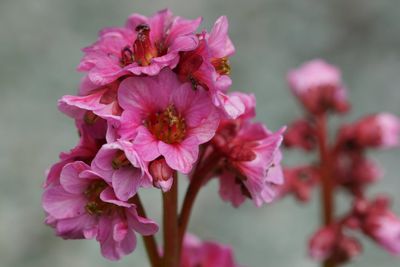Growing Bergenia from Seed
Bergenia is a semi-evergreen perennial that is hardy in USDA zones 4 through 10. It’s a great choice for home gardeners in a lot of different areas, providing a low-growing, spreading groundcover. The leaves are dark green, glossy, and heart-shaped. It spreads through its underground stems and is perfect for filling in those areas where grass is sparse, or where you just want something different. The plants grow up to about six inches (15 cm.) tall, but when they bloom, the spikes of flowers shoot up to 12 to 18 inches (30 to 46 cm.). The flowers are a deep reddish-pink and grow in attractive clusters. This groundcover will give you early spring flowers and nearly year-round foliage.
How to Plant Bergenia Seeds
Propagating bergenia by seed is a great option because it is easy and inexpensive. You can use seeds to get a patch of groundcover started, or to help it spread more quickly. Before sowing bergenia seeds, be sure you have the right conditions where you intend to plant the groundcover. Bergenia thrive in full sun where summers are mild and in partial shade when summers are hot. The soil does not need to be rich, and water needs are moderate. However, if you can provide richer soil and more water, you may get more flowers. Start bergenia seeds indoors. Use a sterile starter mix and press the seeds lightly into the soil. Do not cover them with soil, as bergenia seeds need light to germinate. Bergenia germination is often uneven, but over three to six weeks you should see all the seeds germinate if the temperature is held steady around 70 to 75 degrees Fahrenheit (21 to 24 Celsius). Keep the soil moist. When ready, plant the bergenia outdoors, spacing 15 to 18 inches (38 to 46 cm.). Knowing when to plant bergenia depends on your location and climate but should be done when the danger of frost has passed. If you have mild winters, you can start your plants in spring or fall. Just be sure to start them indoors first and then transplant outdoors.
